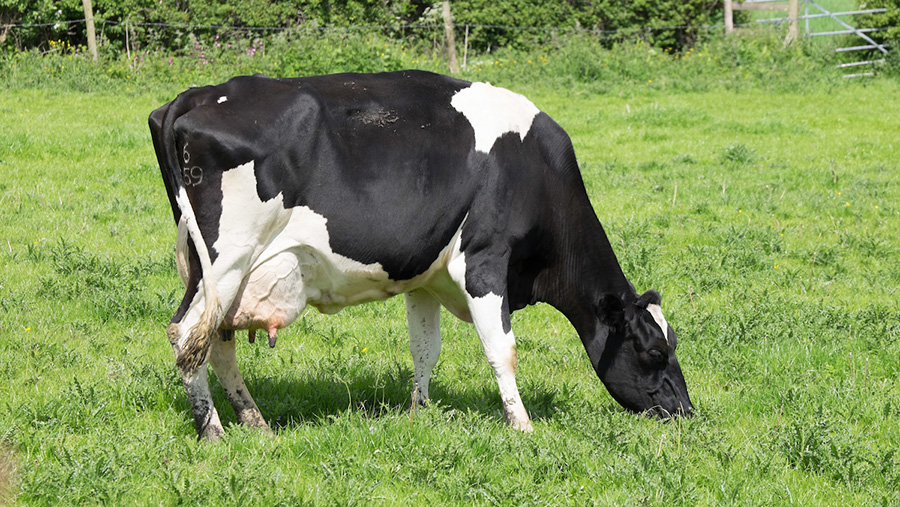Schmallenberg virus reported in Wales and west of England
 © Tim Scrivener
© Tim Scrivener Farmers in Wales and the west of England are advised to remain vigilant following concerns that livestock in the region have been exposed to Schmallenberg virus.
Schmallenberg can cause a temporary dip in production, such as milk output, although abortions, stillbirths and birth defects can result when pregnant animals are affected.
Recent weeks have seen positive tests for Schmallenberg reported in bulk milk from dairy herds.
There have also been some positive blood samples reported from cattle and sheep.
See also: Lab closures prompt call for animal disease database
Tom Wright, a farm vet serving clients in Cheshire, Shropshire, Staffordshire and north Wales, said bulk milk tests from herds in the past month had come back positive.
So too had some blood samples from heifers and lambs.
It is unusual because the Schmallenberg virus is more often associated with livestock in the south and east of England, having been carried by midges from continental Europe.
Mr Wright told Farmers Weekly it was likely the virus had been circulating in Wales and the west of England during late summer or early autumn.
Background surveillance
While there was little livestock producers could do now, farmers should stay vigilant for any outbreaks of disease and check with their vet if they observed anything untoward.
Mr Wright, of vets Lambert Leonard & May, said: “As background surveillance by Animal and Plant Health Agency becomes less and less, it becomes more important to monitor on-farm.”
Independent dairy and beef consultant Hefin Richards said positive Schmallenburg virus results had been recorded in west Wales as well as Shropshire and Cheshire.
“What we’ve seen in dairy cows is sporadic scouring and a yield drop.”
Subsequent tests suggested the cause was Schmallenberg virus rather than anything related to feed rations, said Mr Richards.
“There was flying midge activity well into the autumn,” added Mr Richards.
Mild autumn
Mild autumn weather meant the virus had persisted longer than might otherwise have been the case but the risk period had now passed.
November was warm and it was noticeable how many flying insects there were around late into the season, he said.
Antibodies in bulk milk tests had shown that herds had been exposed to Schmallenberg, said Mr Richards. So too had some blood tests.
Digestive upset and loss of production had been an immediate issue although there would be a risk of foetal abnormalities in animals exposed to the virus while pregnant.
Schmallenberg virus causes mild clinical signs in adult ruminants, ranging from fever, diarrhoea and temporarily reduced milk production.
Infection of pregnant cattle, sheep and goats can cause transplacental transmission, which months later can lead to abortions, stillbirths and congenital malformations in newborns.
